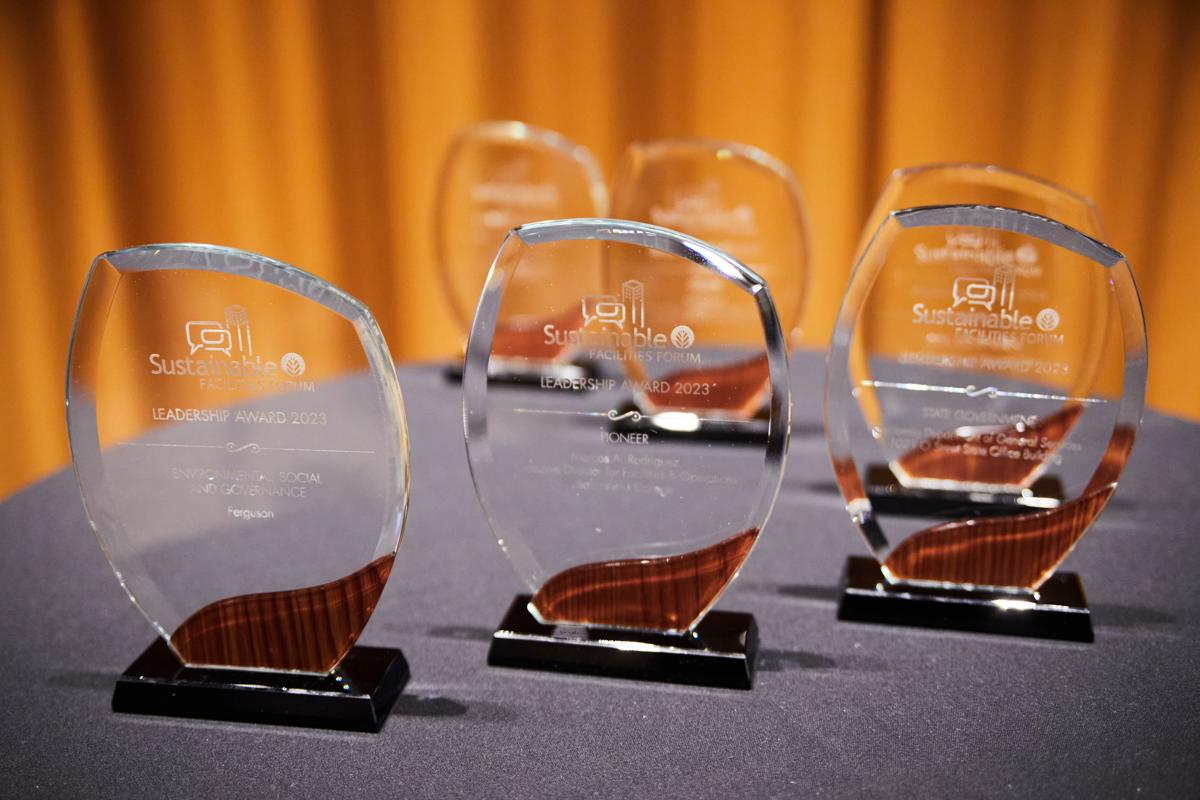
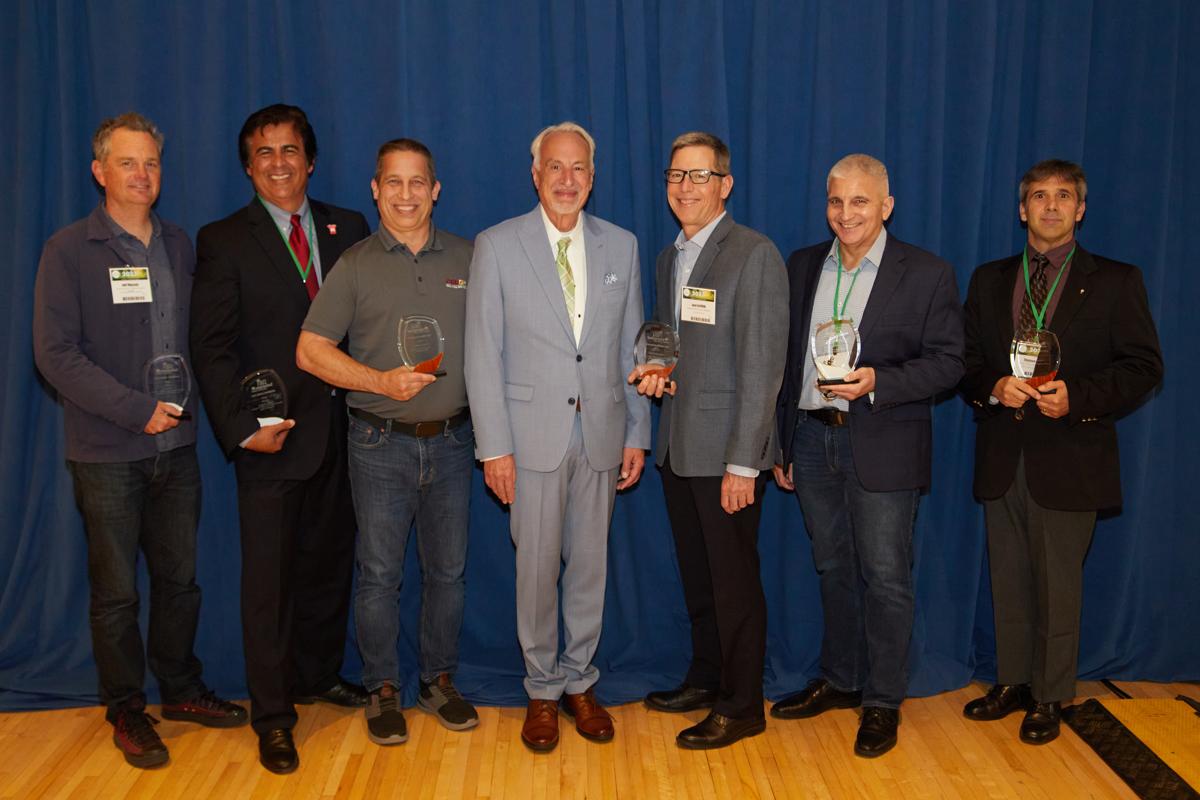
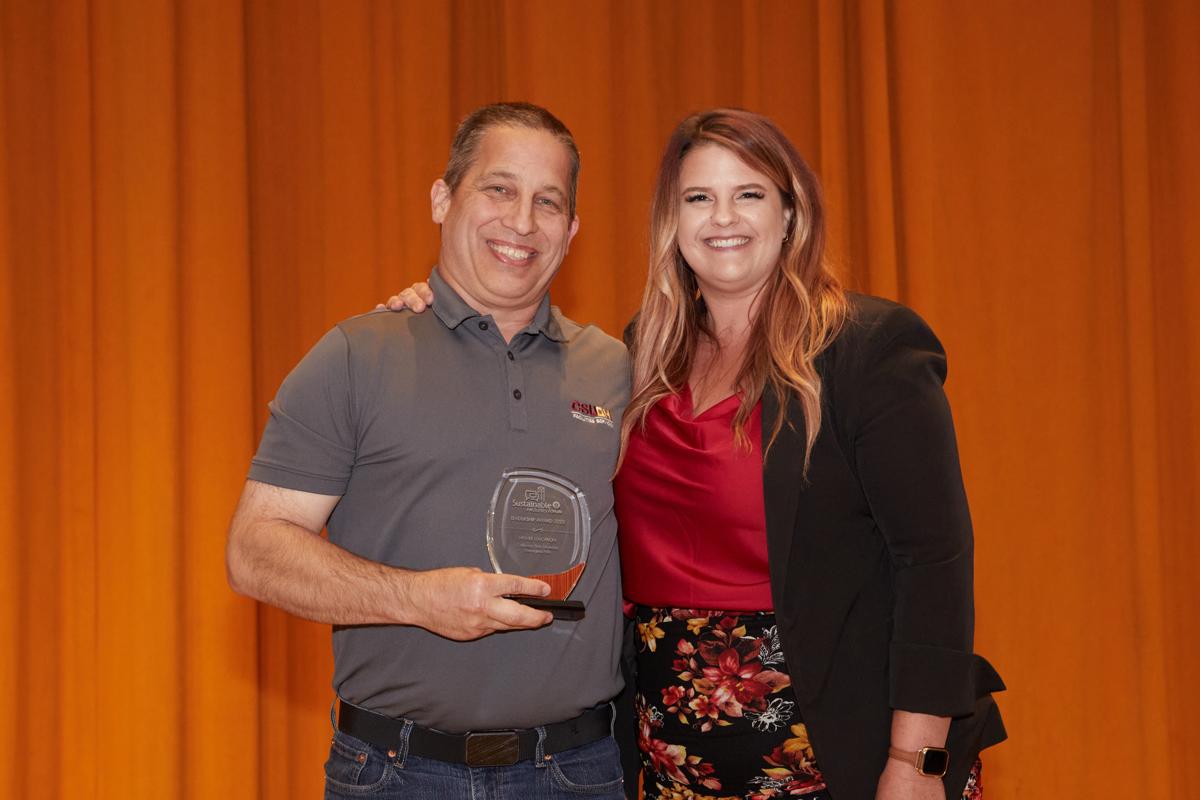
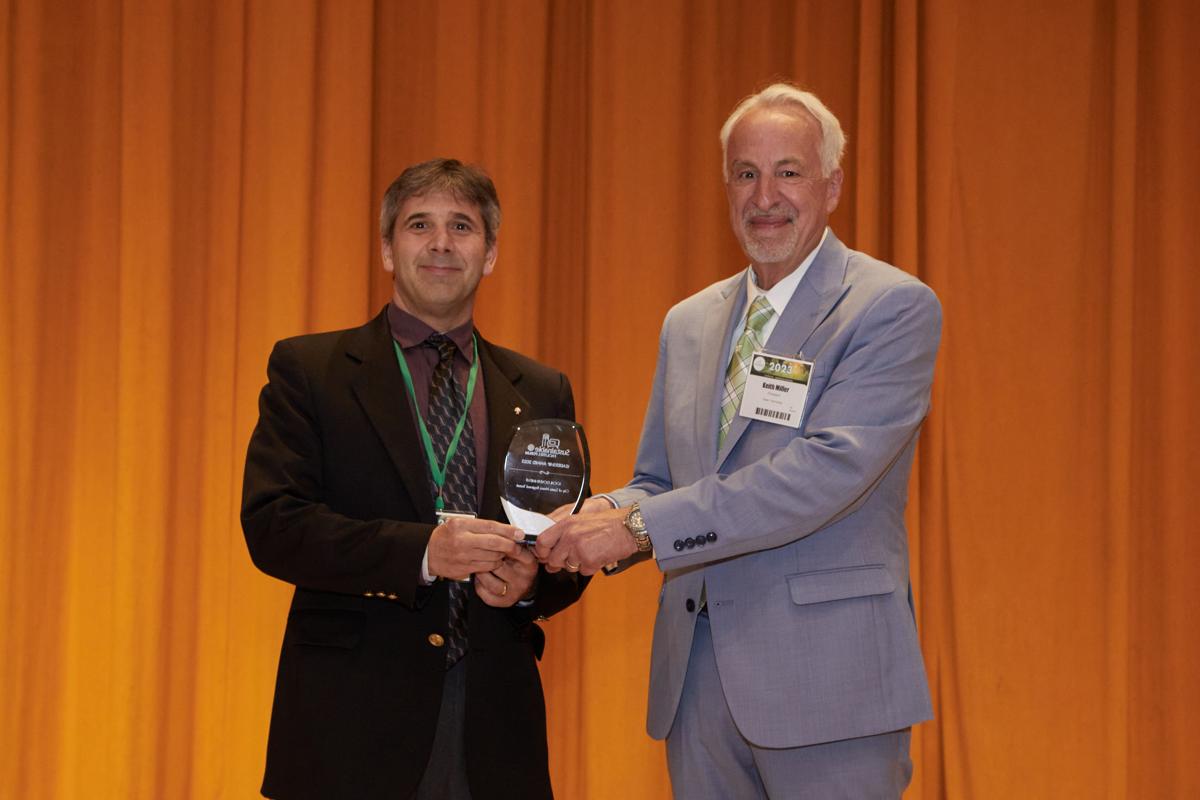
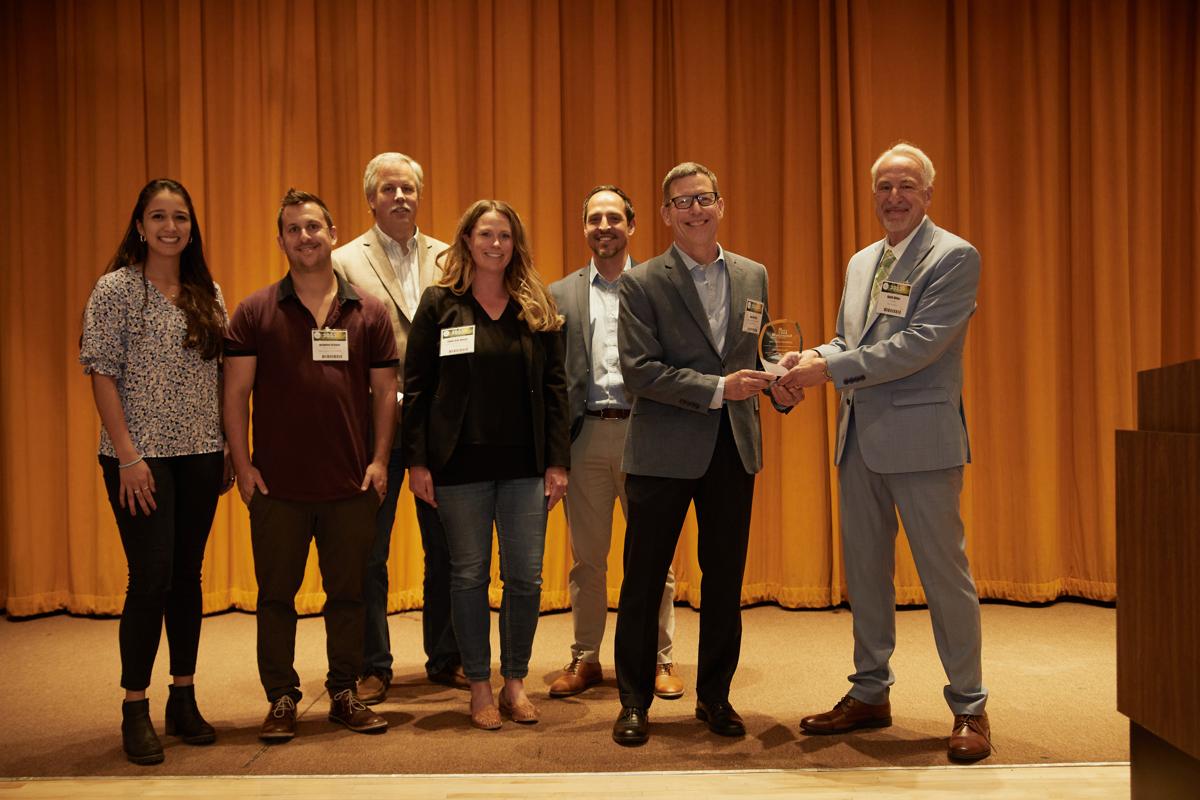
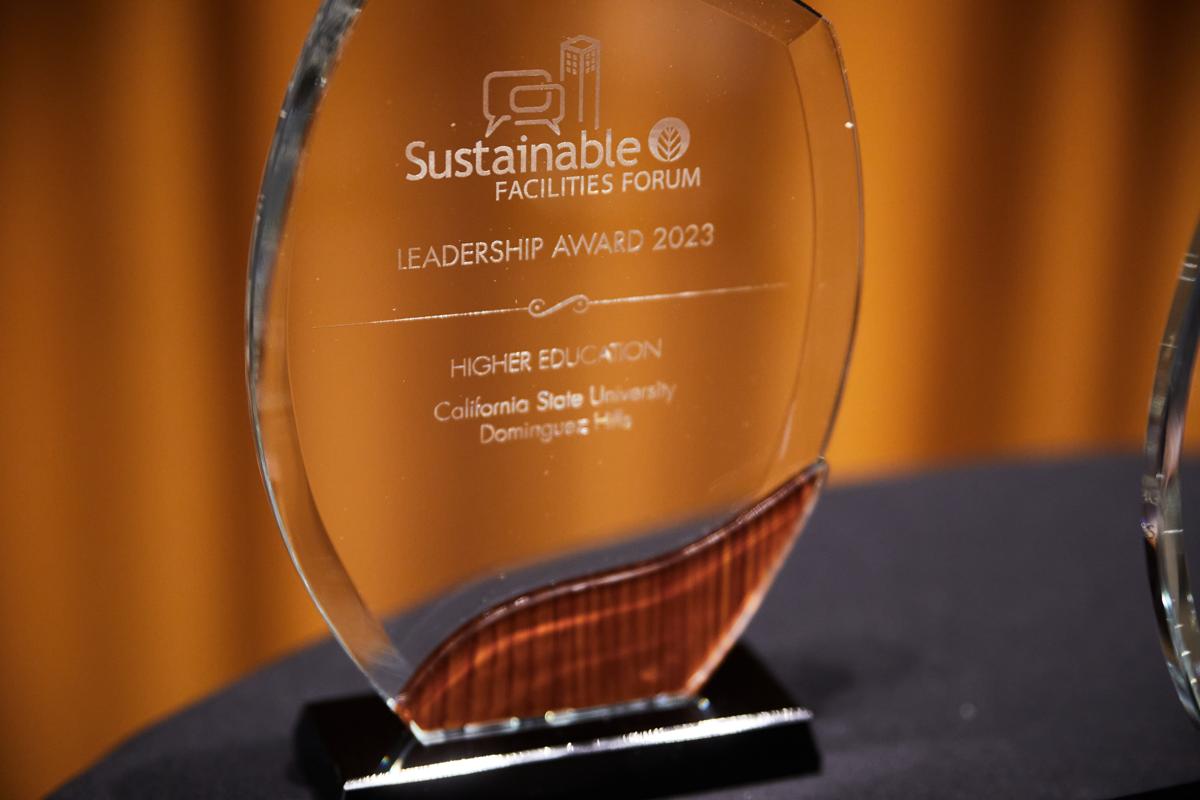
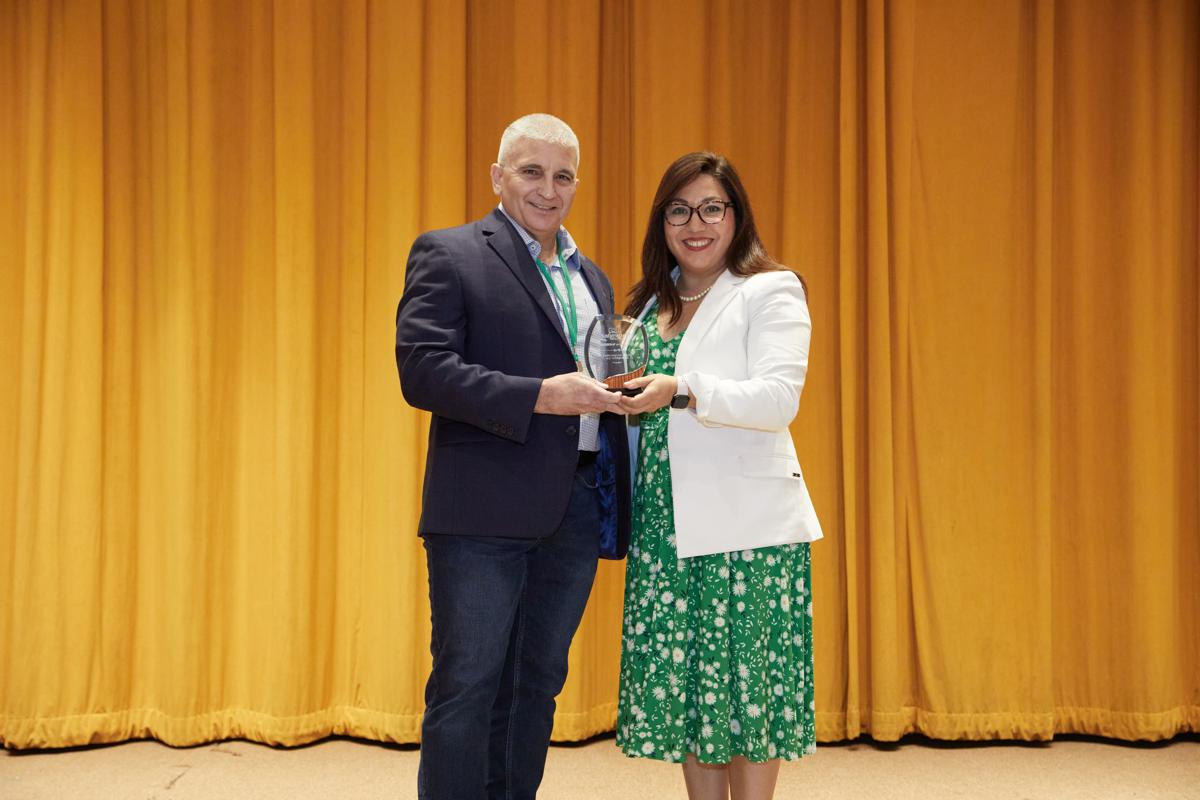
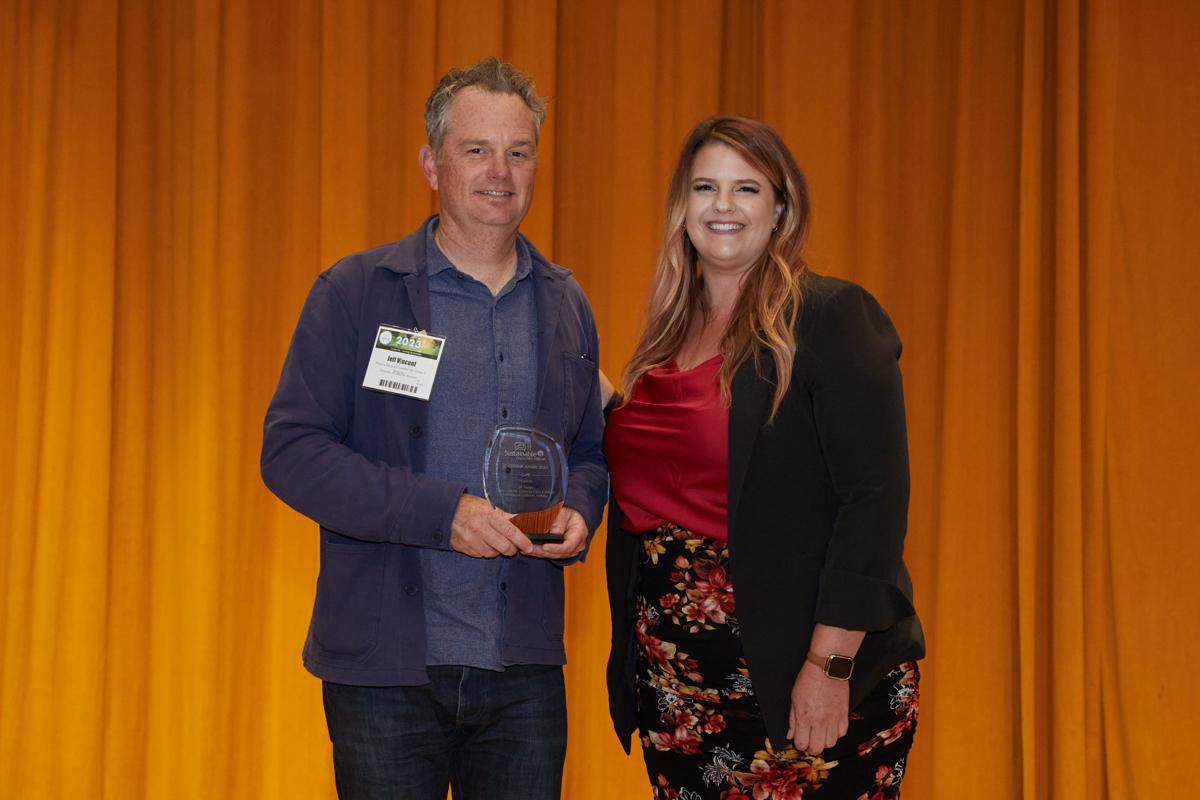
Green Technology’s Leadership Awards aim to recognize and honor individuals, organizations, and institutions that have made significant contributions to advancing sustainability efforts and reducing carbon footprints in various sectors. These awards serve as a platform to acknowledge and celebrate the exceptional work done by stakeholders and leaders in promoting green technologies and practices.
The categories for recognition can vary based on the specific focus areas and priorities of the state and its sustainability goals. Here are the categories for recognition at the May 2023 Sustainable Facilities Forum recently held at the Scottish Rite Masonic Center in Sacramento, California:
- State Building
- Environmental, Social and Governance (ESG)
- Local Government
- Pioneer (There were two awardees in this category for 2023.)
- Higher Education
State Building
Department of General Services
1021 O Street State Office Building
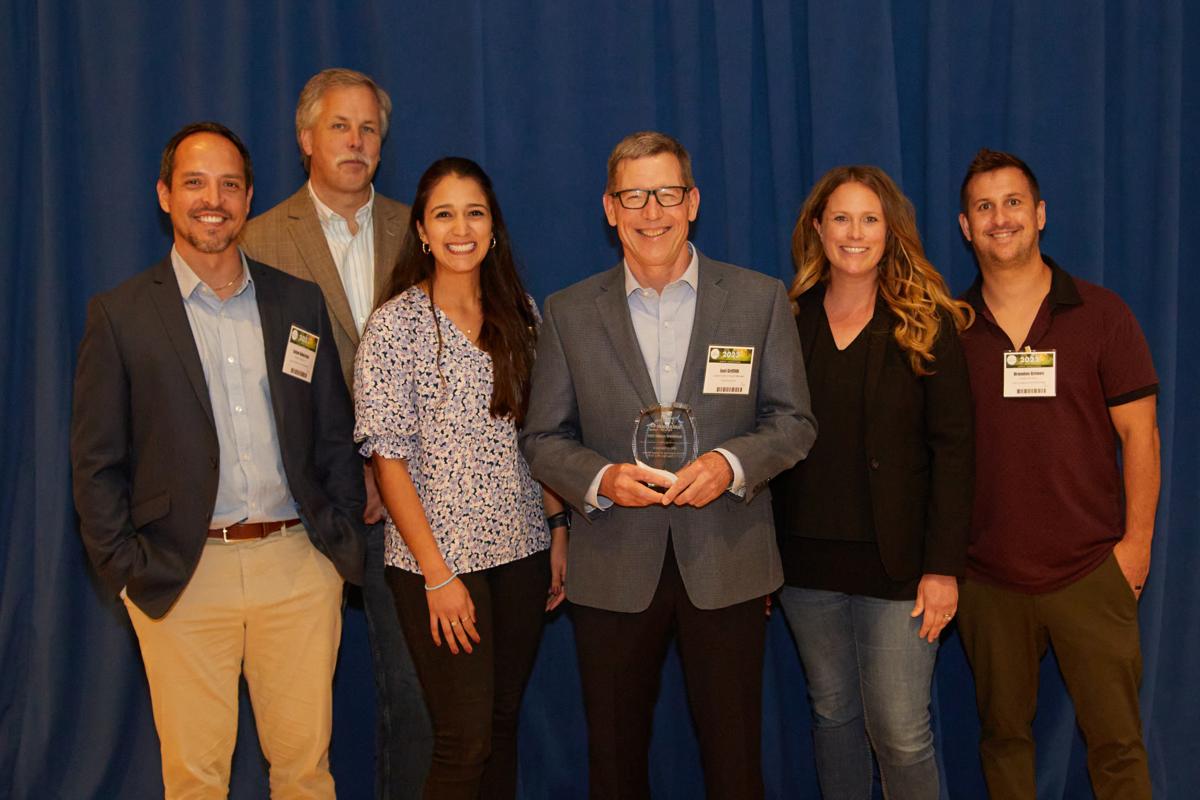
The 1021 O Street State Office Building was designed to embody the State of California’s goals to achieve carbon neutrality and serve as a beacon of sustainability in the State of California’s portfolio. This 10-story, LEED Platinum-certified, Net-Zero Energy and Carbon building provides a transitional home for California’s Legislature and Executive Branch and facilitates public access to legislative hearings.
The 1021 O Street State Office Building was designed to embody the State of California’s goals to achieve carbon neutrality and serve as a beacon of sustainability in the State of California’s portfolio. This 10-story, LEED Platinum-certified, Net-Zero Energy and Carbon building provides a transitional home for California’s Legislature and Executive Branch and facilitates public access to legislative hearings. The building is powered by 100% renewable energy through community solar agreements with the Sacramento Municipal Utility District, reducing carbon emissions and air pollution as well as the energy demand from the utility grid. This also gave the local utility provider the customer commitment they needed to justify further solar farm developments and investments. Inspired by nature and the unique place of Sacramento, this experience is celebrated throughout the interior and exterior of the building through practices that promote community health and well-being. The kinetic nature of the building enables a more verdant and calming environment. The lightweight exterior is broken at the building center, creating a user-centric “heart” for sheltered views and outdoor interaction. An interactive dashboard in the building lobby shares live metering of climate, air quality, and the building’s energy consumption and renewable energy generation.
As one of California’s first Net-Zero, all-electric state office buildings, the project sets a precedent for the State’s efforts in achieving carbon neutrality and increasing infrastructure resiliency as part of their Sustainability Plan.
The award was accepted by Joel Griffith, DGS and the O Street team.
Local Government
City of Santa Maria Regional Transit
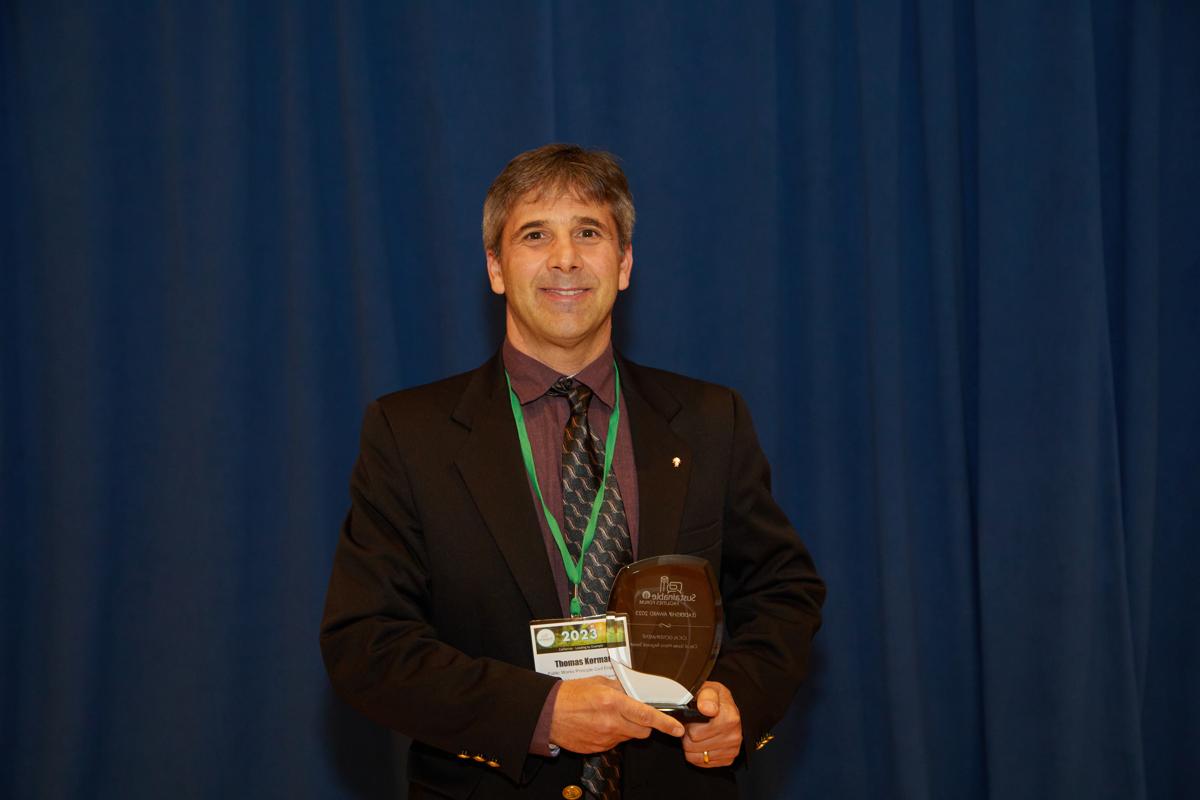
The Santa Maria Regional Transit (SMRT) system faced serious challenges including unresolved triennial reviews, lapsing federal funds, open federal findings, uncompleted capital projects, declining ridership, unmet needs requests, and a significant driver shortage due to the COVID-19 pandemic. However, City of Santa Maria Regional Transit implemented several innovative solutions to address all these issues and create a fiscally and operationally sound transit system.
Over a 12-month period, SMRT achieved significant milestones, including completing both the federal and state triennial reviews, identifying and utilizing $5 million in lapsing federal transit funds, negotiating a two-year extension with the Transit Operations & Maintenance Contractor, reducing the number of drivers needed by 21%, improving service efficiency, synchronizing all routes on the same frequency, creating two new transfer centers, and launching a free student pass program.
Additionally, SMRT introduced two transit rider-focused digital smartphone applications, developed the Zero Emission Vehicle Transition Plan, updated the Bus Stop Improvement Plan, secured $6.6 million in discretionary federal funding, and obtained approval for a $22 million spending plan for FY 22-24. These efforts have resulted in improved service reliability, on-time performance, reduced program costs, fewer carbon emissions and a modernized transit system that better serves its community.
As a result, the transit program has seen a demarcated 31% increase in ridership since enacting the changes and is projected to surpass pre-covid ridership numbers by the end of FY 22/23. Community members now see their local public transit service as a true resource and asset to the community, making him a true pioneer in sustainable practices.
The award was accepted on behalf of the City of Santa Maria Regional Transit (SMRT) by Thomas Korman, Public Works Principle Civil Engineer.
Environmental, Social & Governance (ESG)
Ferguson
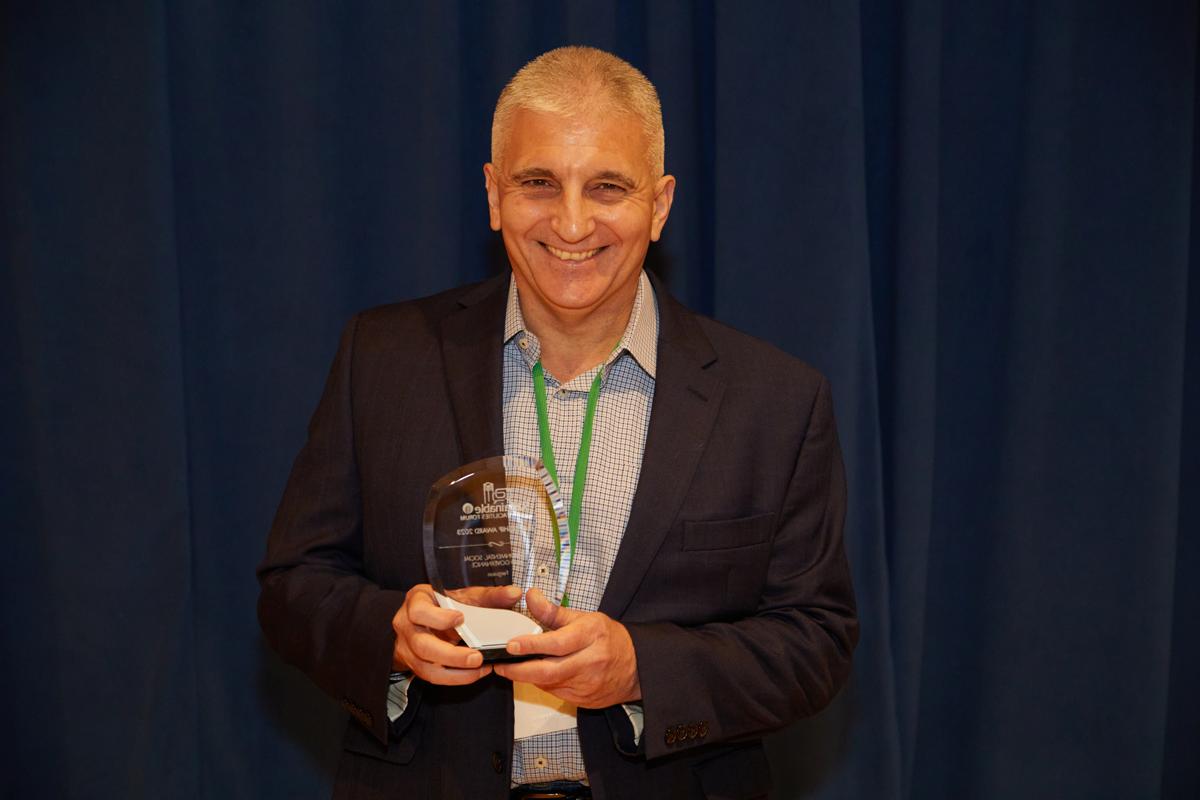
Through a first-of-its-kind collaboration, Ferguson has partnered with Holman, a global automotive services organization, and Electrada, an electric fuel solutions company, to pilot fleet electrification in California. This groundbreaking effort delivers a turnkey fleet management and electrification solution enabling Ferguson to deploy medium- and heavy-duty all-electric vehicles throughout California while streamlining the development of the necessary charging and energy management infrastructure. Construction of the depot-charging infrastructure is underway, and Ferguson anticipates taking delivery of the initial 15 all-electric trucks before the end of the year, with the next 15 to be delivered in 2024.
As part of Fergusons efforts to further integrate ESG into its corporate goals, in 2022 Ferguson formed the Environmental Leadership Council (ELC), chaired by Director of Environmental Product Strategy Stephanie Vega Ziegler. The ELC is comprised of leaders across Ferguson’s customer groups, Ferguson Ventures, and Ferguson’s marketing and ESG teams who possess decades of combined experience driving sustainable solutions across the company and the marketplace. This group brings broad and deep industry knowledge and a level of passion to help drive their strategy.
Ferguson continues to implement new packaging solutions and shipping techniques within their operations by improving packaging efficiency rates resulting in reduced expenses associated with replacing and shipping products. Their efforts to optimize packaging and shipping has reduced the amount of waste that customers need to recycle downstream.
In 2022 Ferguson joined the Building Decarbonization Coalition, an organization that works to unite building industry stakeholders with energy providers, environmental organizations, and local governments to power the nation’s homes and workspaces with clean energy. In fiscal year 2022, over $3 billion of Ferguson’s revenue was attributed to sustainable products with third party certifications, including Energy Star, WaterSense, Green Seal, ECOLOGO, EPA Design for the Environment and Forest Stewardship Council. This represents a 20% increase from fiscal year 2021.
These efforts span from the top of the company on down through the ranks and right out into the community where the company manages their touch points with the needs of the community.
The award was accepted by Steve Auld on behalf of Ferguson.
Pioneer
Marcos A. Rodriguez
Executive Director for Facilities and Operations
Bakersfield College
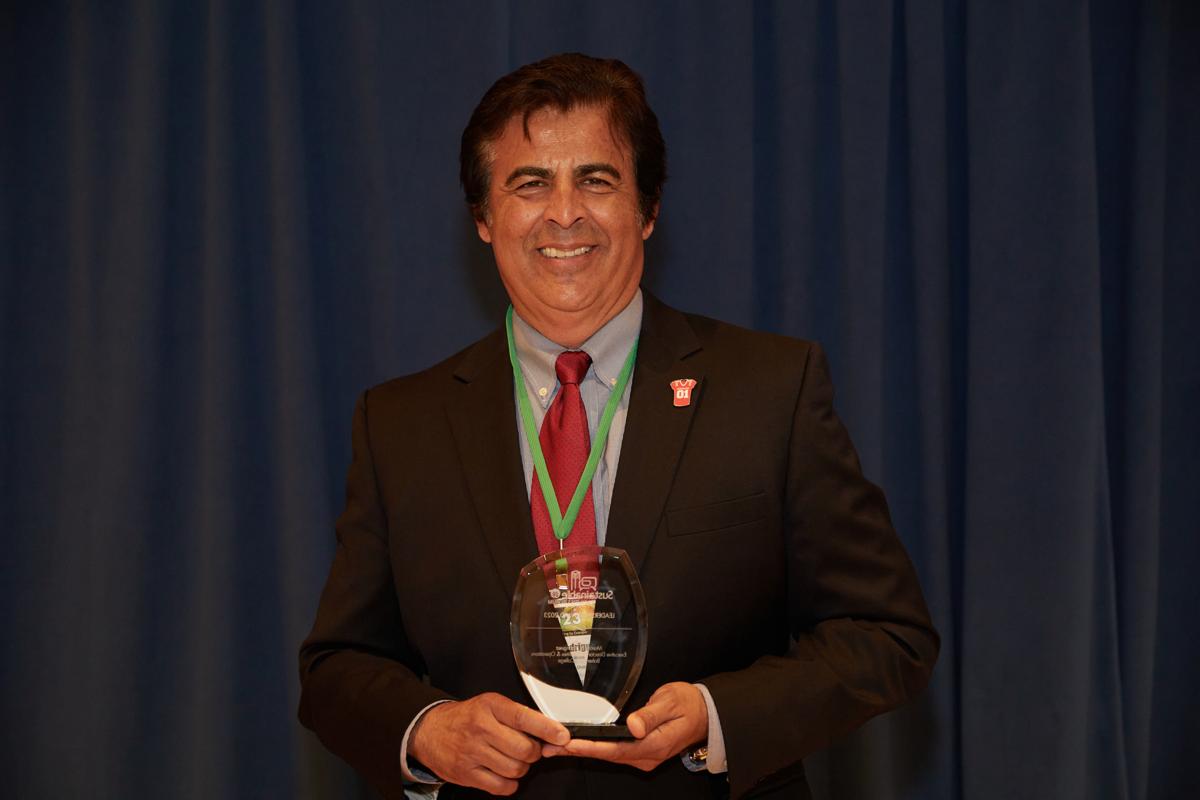
Marcos A. Rodriguez has made a significant sustainable impact at two elementary school districts located in Kern County. Delano Union School District (DUSD) is where he began his career in public education and at Bakersfield City School District (BCSD).
Monies saved from solar system energy production at both districts were reintegrated into academic and operational programming. For Delano Union School District the introduction of CNG vehicles reduced diesel emissions by 80% and cost almost half the cost of the fuel being used. In doing this activity, DUSD was able to self-perform transportation routes that were typically contracted out at BCSD, the implementation of CNG fuel, hybrid, and electric vehicles was also instituted. Modernization of old buildings and new construction projects were done applying Title 24 code requirements and technologies such as daylighting. Centralized irrigation control system projects were implemented in both districts saving water and operational costs as well.
Numerous tree plantings also took place that resulted in several hundred trees being planted at both districts. The development of an Urban Forestry Management Plan covered a districtwide tree inventory with GIS positioned trees, Green House Gas (GHG) reduction emissions being calculated at BCSD. The conversion of gas/diesel vehicles that transitioned to Compressed Natural Gas (CNG) fuel was a major achievement at DUSD. The introduction of trash compactors piloted at Bakersfield City School District proved beneficial in operational cost reductions, and emissions produced by trash coming to sites twice a day.
Bakersfield City School District was able to save over $4 million dollars on energy management practices and more than half a million in water savings for both domestic and landscape usage. With the solar installations constructed, a total of $5 million across all 49 facilities. One modernized site – Voorhies Elementary School that was constructed in 1958 has become a complete net zero energy campus with all the improvements made. In this same campus, dozens of trees were planted creating a true arboretum effect for the campus. MLK Elementary School was a newly constructed K-6 school site that both net zero energy and carbon. The remainder of the campus was net energy as well.
Both districts continue to benefit from all activities listed. Both venues are dynamic, and staff and the campus communities continue with daily operations maintaining excellence to this day.
Pioneer
Jeff Vincent
Director, Public Infrastructure Initiatives
Center for Cities + Schools, University of California, Berkeley
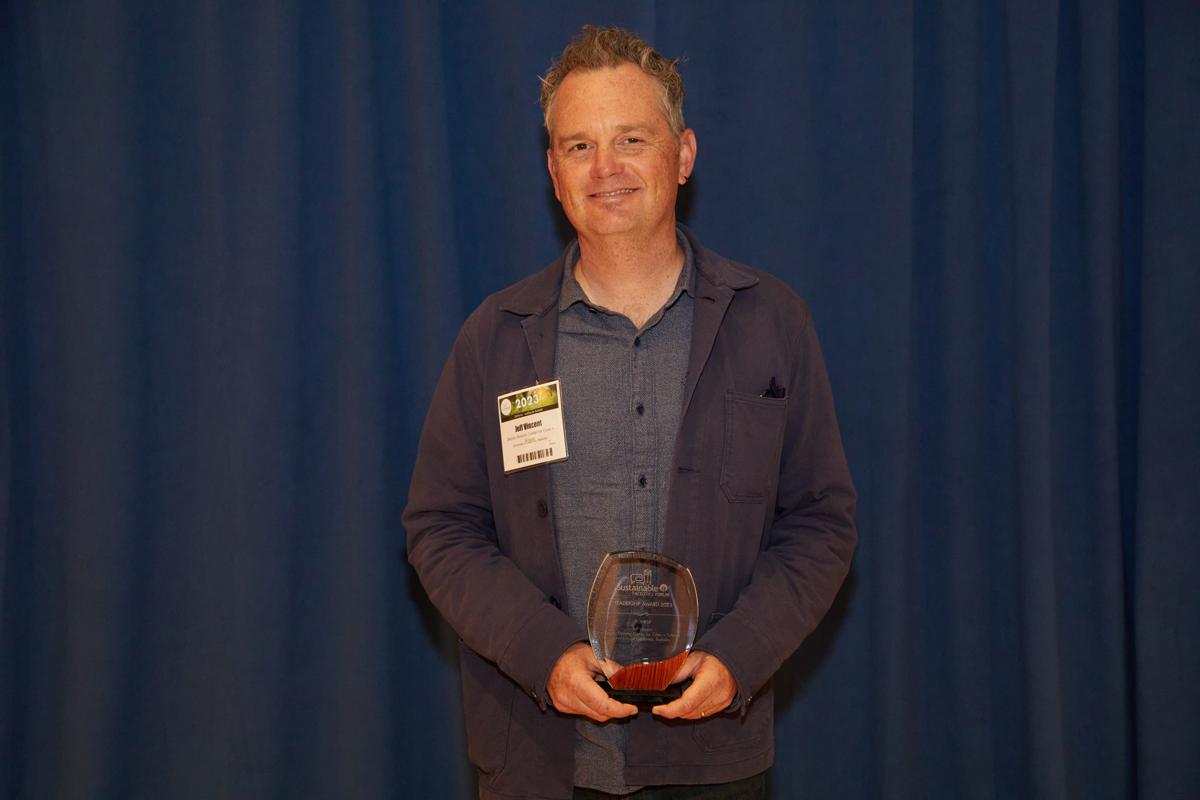
Jeff’s research is used to inform collaborative policy at multiple levels of government that is principle-driven and provides transparency, fairness, and accountability.
Most recently Jeff’s research contributed significantly to a critical report released in March: Climate Resilient California Schools – A Call to Action. Jeff is an applied and policy-focused researcher, looking for practical solutions to challenging problems. His work rests at the nexus of three fields: urban planning, community development, and public education.
Much of his work focuses on how neighborhoods, cities, and regions can promote high quality public education and how public education can promote healthy, vibrant neighborhoods, cities, and regions.
In 2004, Jeff co-founded the Center for Cities & Schools (CC+S) at the University of California, Berkeley. CC&S is a policy research and technical assistance center, working to create more equitable and sustainable cities through linking urban planning and public education, and involving youth voice.
He is also a founding board member of the [Re]Build America’s School Infrastructure Coalition (BASIC), a non-partisan coalition of civic, public sector, labor, and industry associations who support federal funding to help under-served public school districts modernize and build K-12 public school facilities, and to do so in ways that are sustainable.
Jeff’s work embodies two key innovations in thinking and acting. First, his work draws knowledge from multiple disciplines and through the use of multiple methods/approaches to aid understanding. Second, it requires bold collaborative work between the too-often-siloed public, nonprofit, and private sectors. These results speak for themselves.
Higher Education
California State University
Dominguez Hills

While participating in a program with SCE called Clean Energy Optimization Pilot (CEOP) that pays rebates based on GHG reduction by reading the Gas and Elect meter at the beginning and end of the year the University was able to reduce energy costs while forwarding their GHG reduction goals.
The project included upgrading VAV controls and making LED lighting retrofits campus wide with smart controls that talk to the Building Automation System. At least 3 campus buildings now use half as much energy as they did previously. Project personnel mixed multiply hardware, software, and control schemes together to achieve maximum energy and comfort levels. The team was able to adjust each light fixture at a granular level to each individual occupant’s desires. Occupancy data from the lighting system was tied to the BAS so that only occupied spaces were heated or cooled. Solar was added to the roof tops so that now some buildings in the daytime are kW negative.
The lighting was done with retrofit kits to not disturb ceilings resulting in less material to dispose/recycle. Enlighted were used for the smart controls that communicates to the Metasys BAS through BACnet. All CHW and HW control valves were replaced with Belimo Smart Energy Valves so that only needed water was pumped to a coil and not extra thus reducing central plant pumping, chilling, and heating demand.
Every occupant in the building now has the lights at the exact lighting level they choose. The entire campus is now benefiting from the energy savings this building now experiences. The Central Plant now has more capacity since it is not pumping as much chilled water to the building.
Accepting the award on behalf of California State University of Dominguez Hills is Kenneth Seeton, Facilities Services | Manager, Central Plant/Energy Manager.
The importance of these awards lies in their ability to inspire and motivate individuals, organizations, and communities to adopt sustainable practices and technologies. By recognizing and honoring the efforts and achievements of sustainability leaders, the awards create role models and showcase success stories that can drive further progress. The awards also provide a platform for networking, collaboration, and knowledge sharing among stakeholders, fostering a sense of community and shared responsibility for environmental stewardship.
Overall, the Leadership Awards play a vital role in promoting and accelerating the transition towards a more sustainable future.
Congratulations to all award winners!!
